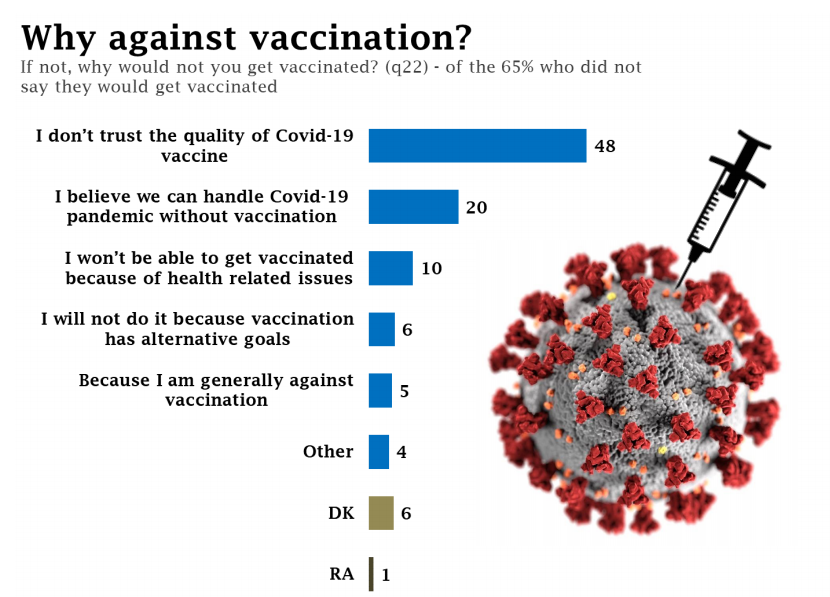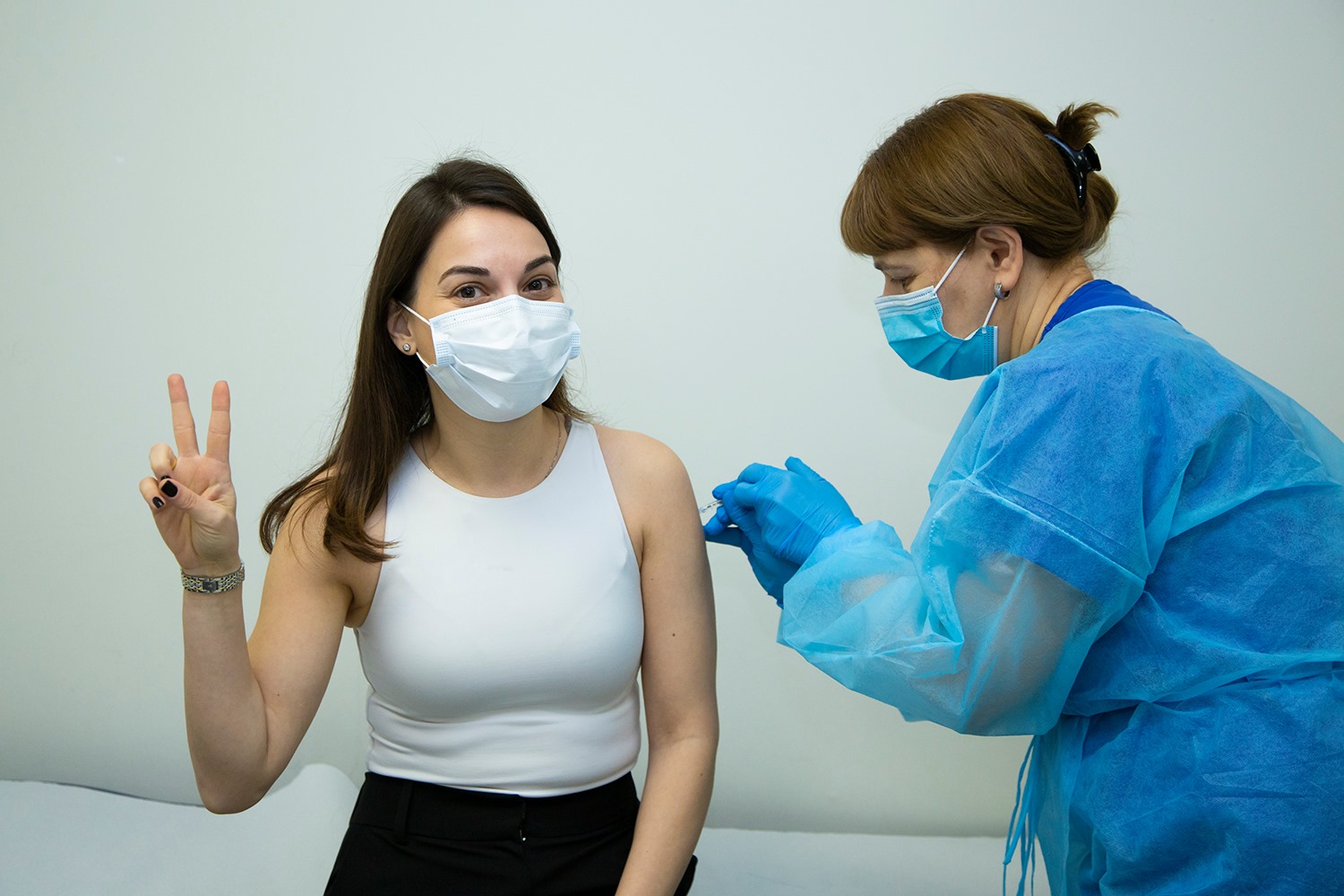
Over half of Georgians would not be willing to get vaccinated for COVID-19, according to new polling by the National Democratic Institute.
According to the poll, 53% of those surveyed said they would not get vaccinated, against 35% saying they would. Twelve per cent said they were not sure. This is a 6% drop in support compared to the previous NDI polling in December, when 41% reported they would be willing to be vaccinated.
The poll was conducted by CRRC Georgia on 17–24 February, weeks before Georgia received the first patches of the AstraZeneca vaccine. On the third day of the vaccine’s rollout, a 27-year-old nurse died after having a severe allergic reaction to the jab, leading to concerns support for vaccination may have dropped further still.
[Read more on OC Media: Fears of vaccine hesitancy grow after nurse dies in Georgia]
Among the 65% of respondents who said they would either not be vaccinated or were unsure, 48% said the quality of the COVID-19 vaccine was the reason for their hesitancy.
Only 6% answered with the most conspiratorial assumption give — that vaccination ‘has alternative goals’.

According to the poll, TV was the main source of information on COVID-19, with 60% naming it as their primary source of information. This was followed by ‘Internet/Facebook’, which was named by 35%.
Asked how much people trusted information about the vaccine from different sources, Georgian medical professionals came out on top with 74% trusting information from medical professionals outside the National Centre for Disease Control (NCDC) and 68% trusting the NCDC. Trust in government information about the vaccine was 62%, with 30% saying they did not trust them.
Forty-seven per cent said they trusted information from their religious leader or church; however, 33% reported not getting such information from this source.
Overall approval of the government’s handling of the COVID-19 pandemic was 68%, an improvement compared to 60% in December.
A majority also approved the government’s economic response to the pandemic, with the largest proportion who were dissatisfied, 43%, identified in the capital Tbilisi.
‘More active’ inoculation campaign promised
As of 23 March, the eighth day since coronavirus vaccine rollout began in Georgia, only around 4,400 doses have been administered so far. The initial doses have been earmarked for medical workers.
On 19 March, the vaccination campaign suffered a disastrous blow after 27-year-old nurse Megi Bakradze died a day after getting a jab in the southern Georgian town of Akhaltsikhe, in what initial reports suggest was an acute allergic reaction.
As a result of rising fears over vaccines, including among medical workers, there have been several reports from medical workers unable to administer any doses of the vaccine as the minimum number of 10 volunteers necessary for a batch to be opened could not be found.
The authorities have since expanded those eligible to be vaccinated to include those aged 65 and above.
According to the latest NDI polls, those aged 55 and above were the most willing age group to get vaccinated, with 40% saying they would do so.

The authorities have vowed to wage a more aggressive pro-vaccination campaign.
On 23 March, Health Minister Ekaterine Tikaradze got vaccinated on camera in the town Sachkhere. She had previously postponed the move claiming she would do so with an unnamed Chinese vaccine the authorities had suggested procuring.
According to UNICEF’s regional office, Georgia should expect 29,250 doses of the Pfizer-BioNTech vaccine on Wednesday, on top of the 43,200 doses of the AstraZeneca vaccine they already have.









